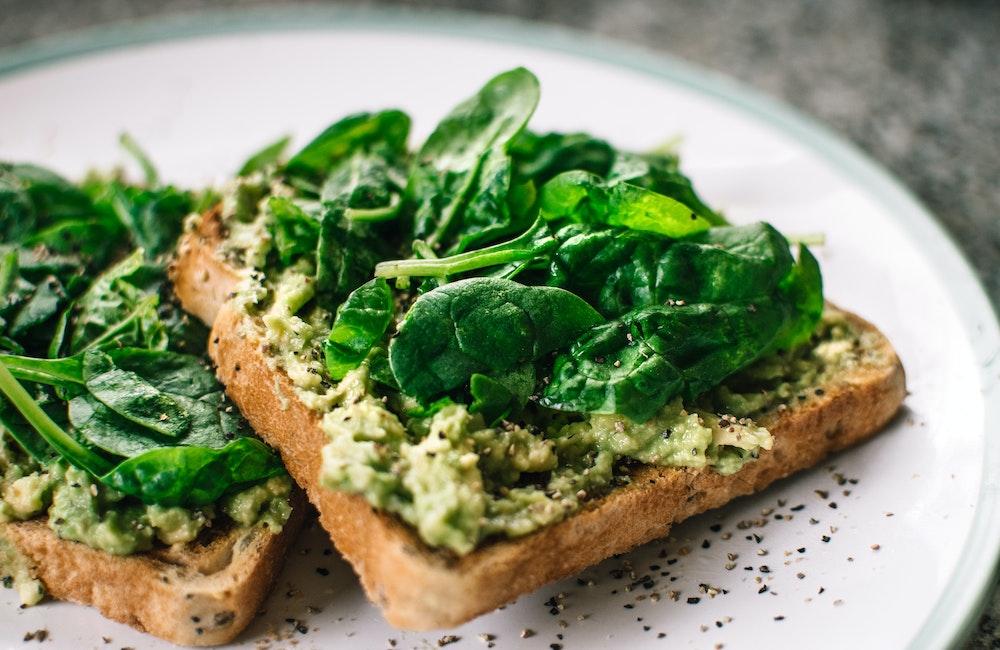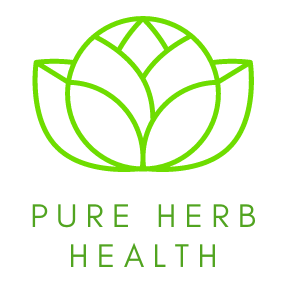Vitamin C (Ascorbic Acid)
Vitamin C is a water-soluble vitamin. The body cannot make it on its own or keep a lot of it. The rest is excreted in the urine. This is why it is necessary to make a conscious effort to take supplements and fruits regularly to prevent a shortage in the body.
Sources
All fruits and vegetables contain some amount of vitamin C. Some fruits that are the highest sources are:
- Citrus fruits (orange and grapefruits) and juices
- Mango
- Pineapple
- Most berries (Strawberries, raspberries, blueberries, bearberries and cranberries)
- Watermelon
- Papaya
Some vegetables with the highest sources are:
- Broccoli, Cauliflower
- Green and red peppers
- Spinach, cabbage, and other leafy greens
- Sweet and white potatoes
- Tomatoes and tomato juice
- Winter squash
Vitamin C can also be got from fortified cereals (check labels to find out) and also supplements in form of tablets, powder (for reconstitution) etc. It is lost from the source when exposed to heat or bright light so make sure to choose your orange juice in cartons rather than clear bottles.
The best food sources are uncooked or raw fruits and vegetables. Storing for a long time also causes losses.

Health Benefits of Vitamin C
Vitamin C is one of the many antioxidants (these are compounds that protect the body from the damaging effects of free radicals in the body). It is needed for the growth and repair of tissues in all parts of the body for example:
- It is essential for the healing of wounds and the formation of scar tissue.
- It repairs and maintains cartilage, bones, and teeth.
- It is essential in the forming of an important protein used to make skin, tendons, ligaments, and blood.
- It helps to mop up free radicals in the body because it is an antioxidant and by playing this role, it then means that vitamin C helps to slow down the ageing process, and plays a role in the management of cancer, heart disease and arthritis.
It is good to let you know about free radicals here. Free radicals are made when your body breaks down food or when you are exposed to some pollution in the environment like tobacco smoke, insecticides, generator fumes or radiation.
These when built up over a long period are responsible for quick ageing, certain kinds of cancer, heart disease, arthritis etc.
Side Effects
It is very rare to have serious side effects because the body does not store them. However, amounts greater than 2000mg/day are too high and are not recommended as they can lead to stomach upset and diarrhoea.
Caution
Pregnant women should take care not to have large doses of vitamin C supplements because it causes the baby to have a shortage of it after delivery.
Signs and Symptoms of Deficiency
When you are not having enough vitamin C that your body requires you are going to experience the following signs/symptoms:
- Anaemia
- Bleeding gums, nosebleeds
- Lowers immunity (decreased ability to fight infection)
- Dry and splitting hair
- Gingivitis (Inflammation of the gums)
- Weakened tooth enamel
- Swollen and painful joints
- Rough, dry, scaly skin
- Easy bruising and wounds not healing fast
In the severe form of deficiency, scurvy results whereby you have general weakness, shortage of blood, gum disease and skin haemorrhages. This affects mainly malnourished adults in developing countries.
Always consult with your healthcare provider to recommend the required dose for you depending on your special need especially for smokers, breastfeeding mothers, pregnant women etc.
Vitamin D (Calciferols)
Vitamin D is popularly known as the sunshine vitamin. They are fat-soluble. They are responsible for increasing intestinal absorption of calcium, magnesium, and phosphate and it has many other biological effects.
Despite its name, vitamin D is not a vitamin but a hormone or prohormone. The liver and kidneys convert it into the active hormone, which is called calcitriol.
In its active form, it helps to increase the amount of calcium that the gut can absorb and also prevents calcium loss from the kidneys. In humans, the most important forms are vitamin D3 and D2.
D2 (ergocalciferol) is usually present in plants and yeast while D3 (cholecalciferol) comes from animal sources. Also, human skin produces D3 as a response to sun exposure.

Sources
You can get most of the vitamin D you require through exposure to sunlight but this may not be applicable in winter periods. You can also get it through the consumption of foods that naturally are rich in vitamin D such as:
- Fatty fish like salmon, mackerel, and tuna
- Egg yolks
- Cheese
- Beef liver
- Mushrooms
- Fortified milk, cereals and juices
Health Benefits of Vitamin D
-
Healthy Bones
It promotes intestinal absorption of calcium and helps to maintain adequate blood levels of calcium and phosphorus, which are necessary for healthy bone mineralization both in adults and children.
-
Immune Function
It is believed that adequate intake may support cell differentiation, proliferation, and immune function and reduce the risk of autoimmune diseases.
-
Cardiovascular Health
Low serum vitamin D levels have been associated with an increased risk of hypertension, atherosclerosis metabolic syndrome, cardiovascular diseases etc.
-
Diabetes
There is evidence that suggests that it plays an important role in modifying the risk of type 2 diabetes.
- Vitamin D contributes to the maintenance of normal muscle function.
- It may prevent certain types of cancers.
- It helps to boost your mood
- It has anti-inflammatory properties that can help treat skin conditions like dryness, acne, eczema, vitiligo and psoriasis. This is the reason many cosmetic brands and dermatologists use it in night creams and moisturisers to help improve your skin.
- Persons with low blood levels of vitamin D are more likely to develop Alzheimer’s disease or other types of dementia.
Deficiency of Vitamin D
There are some persons that are more likely to be at risk of deficiency than others, even though the body can create it, there are certain factors that can predispose one to deficiency and they include:
-
Skin colour
Pigmentation in the skin reduces the ability to absorb ultraviolet B (UVB) rays from the sun and absorbing sunlight is essential for the skin to produce vitamin D. This means invariably that persons of African, African-Caribbean or South Asia may not be able to make enough from sunlight.

-
Lack of Sun Exposure
People that hardly expose themselves to sunlight like people living in northern latitudes, that work night shifts or are homebound should endeavour to supplement from food sources always.
-
Breastfeeding Infants
Most breastfeeding infants aren’t exposed to the sun so they are likely to be deficient if the nursing mum doesn’t have enough.
-
Older Adults
The skin’s ability to synthesise vitamin D decreases with age and also because they spend more time indoors.
-
Those With Conditions that Limit Fat Absorption
Conditions that limit fat absorption can decrease the intake from the diet since vitamin D is fat soluble.
-
People With Obesity
High levels of body fat can limit the body’s ability to absorb vitamin D from the skin.
Signs and Symptoms of Deficiency
Most people with a deficiency do not present with symptoms. However, a chronic deficiency may cause hypocalcaemia (a low calcium state), and hyperparathyroidism, where the parathyroid glands create a hormone imbalance that raises the blood calcium levels. These conditions can then lead to secondary symptoms including:
- Bone fragility, especially in older adults
- Osteoporosis
- Bone pain
- Fatigue
- Muscle twitching
- Muscle weakness
- Myalgia or Muscle pain
- Joint stiffness
- If the deficiency continues for long periods, it may result in complications like cardiovascular conditions, autoimmune problems, infections, pregnancy complications, and certain cancers like breast cancer, prostate cancer and colon cancer.
- Chronic deficiency can cause rickets, which is a softening of bone tissues that can lead to malformation of bones and joints in infants.
- Pregnant women that are deficient in vitamin D may have a greater risk of developing preeclampsia (pregnancy-induced hypertension) and preterm delivery.
Vitamin E
Vitamin E is a family of structurally related, plant-derived fat-soluble compounds. It occurs naturally in eight different forms, including four tocopherols (alpha, beta, gamma and delta) and four tocotrienols.
The alpha-tocopherol is the most common and most potent form. It is found in blood and tissues and no other form can be interconverted to alpha-tocopherol in humans. It is absorbed in the small intestine. Then, taken up by the liver where it is then stored until it is needed.
Sources
Vitamin E is a vital nutrient for good health and it is found in a wide variety of foods (healthy diets) and supplements. Some of the foods include:
- Spinach
- Broccoli, Asparagus
- Sunflower seed, safflower oil, vegetable oil, wheat germ
- Avocado, kiwifruit, strawberry, cantaloupe, tomato, mango
- Pine nuts, Nuts
- Salmon, eggs, meat, poultry

Health Benefits of Vitamin E
- It acts as an antioxidant, scavenging and mopping up free radicals that can damage cells in the body.
- It may help prevent coronary heart disease.
- It supports immune function.
- It prevents inflammation.
- It promotes eye health.
- It may help lower the risk of certain kinds of cancer.
- It may help to prevent or delay cognitive decline.
- It helps wounds to heal fast.
- It has been used for decades to protect the skin from free radicals.
Deficiency of Vitamin E
Vitamin E deficiency is very rare but some people are more prone than others and they include infants, and people with condition that prevents the body from completely absorbing certain dietary fats.
Signs and Symptoms of Deficiency
The following are some of the signs of deficiency in persons prone to deficiency:
- Anaemia
- Impairment of immune response and nerve damage
- Skeletal myopathy (muscle problem)
- Ataxia (unsteady gait)
- Retinopathy
Caution
- Some people may be sensitive to Vitamin E supplements which can cause diarrhoea, nausea, stomach cramps, weakness, tiredness, headaches, rashes and other problems.
- Excess vitamin E in the body is not excreted through the urine as it is fat-soluble and stored in the body. So, there is a tendency for excess to accumulate to a toxic level and can cause excessive bleeding and many other symptoms so care should be taken when consuming supplements.
- Avoid taking at least two weeks before surgery to prevent excessive bleeding.
- Vitamin E is sensitive to heat and can easily degrade on exposure to extreme heat or direct sunlight so always store it in a cool, dry room, in its original container.
Interactions of Vitamin E Supplements With Medications
- It prevents platelet aggregation, meaning that it slows blood clotting so it is important to talk with a healthcare professional before you take vitamin E if you are on blood thinners like warfarin(Coumadin), clopidogrel(Plavix), Aspirin (low dose).
- It can also interact with cyclosporine, certain chemotherapy drugs, and statin drugs like atorvastatin (Lipitor).
Forms of Vitamin E Supplements
The supplements are available in two forms: synthetic and natural. There are some supplements that contain the two forms and it is referred to as mixed tocopherols.
The natural form of vitamin E is alpha-tocopherol while the synthetic form is Dl-alpha-tocopherol. Both work well; however, a larger dose of synthetic form is required to achieve similar results.
In conclusion, vitamin E is nature’s gift to humanity, well packaged and provided in most foods you eat so be well advised to eat healthy always! No junks! To be continued……………

